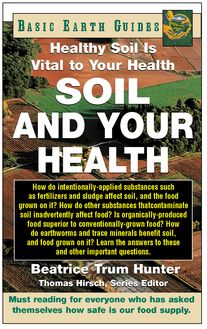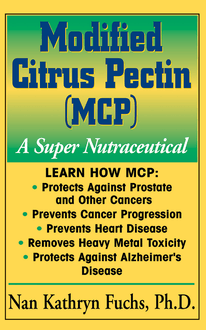-
 Univers
Univers
-
 Ebooks
Ebooks
-
 Livres audio
Livres audio
-
 Presse
Presse
-
 Podcasts
Podcasts
-
 BD
BD
-
 Documents
Documents
-
- Cours
- Révisions
- Ressources pédagogiques
- Sciences de l’éducation
- Manuels scolaires
- Langues
- Travaux de classe
- Annales de BEP
- Etudes supérieures
- Maternelle et primaire
- Fiches de lecture
- Orientation scolaire
- Méthodologie
- Corrigés de devoir
- Annales d’examens et concours
- Annales du bac
- Annales du brevet
- Rapports de stage
La lecture à portée de main
Vous pourrez modifier la taille du texte de cet ouvrage
Découvre YouScribe en t'inscrivant gratuitement
Je m'inscrisDécouvre YouScribe en t'inscrivant gratuitement
Je m'inscrisEn savoir plus
Vous pourrez modifier la taille du texte de cet ouvrage
En savoir plus

Description
Sujets
Informations
| Publié par | Turner Publishing Company |
| Date de parution | 01 janvier 2003 |
| Nombre de lectures | 2 |
| EAN13 | 9781591206705 |
| Langue | English |
Informations légales : prix de location à la page 0,0398€. Cette information est donnée uniquement à titre indicatif conformément à la législation en vigueur.
Extrait
The information contained in this book is based upon the research and personal and professional experiences of the author. It is not intended as a substitute for consulting with your physician or other healthcare provider. Any attempt to diagnose and treat an illness should be done under the direction of a healthcare professional.
The publisher does not advocate the use of any particular healthcare protocol but believes the information in this book should be available to the public. The publisher and author are not responsible for any adverse effects or consequences resulting from the use of the suggestions, preparations, or procedures discussed in this book. Should the reader have any questions concerning the appropriateness of any procedures or preparation mentioned, the author and the publisher strongly suggest consulting a professional healthcare advisor.
Illustrations: Dorena Rode
Series Cover Designer: Mike Stromberg
Editor: Carol Rosenberg
Typesetter: Gary A. Rosenberg
Basic Health Guides are published by
Basic Health Publications, Inc.
28812 Top of the World Drive
Laguna Beach, CA 92651
949-715-7327 • www.basichealthpub.com
Copyright © 2003 by Nan Kathryn Fuchs, Ph.D.
ISBN: 978-1-59-120-670-5
All rights reserved. No part of this publication may be reproduced, stored in a retrieval system, or transmitted, in any form or by any means, electronic, mechanical, photocopying, recording, or otherwise, without the prior written consent of the copyright owner.
Printed in the United States of America
10 9 8 7 6 5 4 3 2
Contents
Introduction
1. How Pectin Can Improve Your Health
2. What Is Modified Citrus Pectin (MCP)?
3. Cancer and the Role of Galectins
4. MCP for Prostate Cancer
5. MCP for Other Cancers
6. MCP Prevents Cancer
7. The Future of MCP
8. How to Use MCP
9. Choosing MCP Products
10. Auxiliary Products
Conclusion
Resources
References
About the Author
“Modified citrus pectin is a natural substance, it’s non-toxic and it has been shown to slow down the progression of prostate cancer. I recommend MCP selectively to patients who have a high risk of recurrence of prostate cancer after any primary treatment. I also recommend MCP for those who have shown a slow, persistent rise of PSA levels that is consistent with established prostate cancer recurrence.”
—Stephen Strum, M.D., Prostate Oncologist Author, A Primer on Prostate Cancer:
The Empowered Patient’s Guide
Introduction
O ur most valuable medicines have their origins in plants. From the Brazilian shrub Cephaelis ipecacuanha that yields ipecac, a remedy for amoebic dysentery, to the bark of the Peruvian chinchona tree that gave us quinine, plants have helped us heal for centuries. Before the era of pharmaceutical drugs, plants and plant extracts were given for every complaint from minor ailments to major diseases. Through trial and error—and through careful observation—ancient doctors learned the properties of each plant. Out of their observations came the first human clinical trials.
Research has become more sophisticated since then, and we now have the ability to extract particular plant molecules. But today’s medicine, both traditional and complementary, has its roots in ancient times with plants. The pattern today is to discover the active ingredients in plants and turn them into pharmaceutical drugs as fast as possible. Pharmaceutical companies then charge high sums of money for these synthetic drugs, making it impossible for many people to afford them. What’s more, many of these drugs have side effects, limiting their long-term usefulness.
At the same time that pharmaceutical companies look for the perfect drug, independent researchers with far fewer funds are studying plant materials looking for natural, less-toxic solutions to our health problems. Pharmaceutical companies pour money into researching and promoting drugs they can patent. Since few natural products can be patented, there is less research on natural products. One exception is modified citrus pectin (MCP), a super nutraceutical with impressive research behind it.
MCP starts out as ordinary pectin and is transformed into a natural product with enhanced capabilities. When it has been properly modified, MCP can keep cancer cells from attaching to the walls or blood vessels (their source of nutrients) or to one another. This keeps them from forming into tumors and from spreading to other sites. But cancer prevention and treatment are only two of its many applications. As recent clinical trials are showing, MCP has a significant role in reducing heart disease and removing toxins.
The discovery of MCP, and the MCP product found in studies to have the most optimal characteristics, is a fascinating story that has not been told before. It begins thirty years ago in Israel when scientists were studying the peel of oranges and grapefruits for any health benefits. And the final chapter has yet to be written.
Pectin is a common soluble fiber that’s found in large quantities in apple skins and the rinds of citrus fruits. It’s made from a long chain of sugar molecules. You may be familiar with using apple pectin in making jams and jellies. It gives them body and a smooth texture. Or you may have used a combination of kaolin clay and pectin to successfully stop diarrhea. As a bulking agent, pectin is also included in some preparations to reduce and eliminate constipation. But this simple fiber does much more. Because it is a soluble fiber, pectin also helps lower cholesterol, reducing your risk for heart disease. But because pectin’s molecules are too large to be digested and absorbed into the bloodstream, its actions are limited to its activity in the digestive tract.
The value of pectin increased substantially when scientists modified its larger molecules into smaller, less complex ones. This new substance, called modified citrus pectin (or MCP), has smaller molecules that dissolve better in water than ordinary pectin’s, increasing its absorption substantially. These smaller molecules are able to travel across the intestinal lining and through the bloodstream where it can interact with other cells in the blood or in tissues.
MCP is one of the most exciting nutraceuticals available today to improve the quality and length of your life. It does everything that pectin alone can do—and much more. Ordinary pectin is useful. Modified citrus pectin is an invaluable nutrient for everyone who wants protection against cancer, cancer progression, and heart disease. By preventing these two major age-associated illnesses, MCP is truly an anti-aging supplement.
It excels as an anticancer nutrient by stopping tumor growth and preventing primary tumors from spreading to other sites. This not only reduces the risk of getting cancer, but it also protects against recurring malignancy as well, even for those people with a genetic predisposition for this disease. MCP guards against heart disease by lowering cholesterol levels and reducing arteriosclerosis. It also removes an underlying cause of many chronic illnesses—heavy metal toxicity.
The preliminary research studying the effects of MCP on animals and humans is compelling, and the implications for future use of this nutrient are exciting. More research is underway, and the completed studies place MCP high on the list of cutting-edge nutraceuticals that are vital for health, longevity, and anti-aging.
1. How Pectin Can Improve Your Health
M any plants contain pectin, but this soluble fiber is found most abundantly in apples, oranges, lemons, and grapefruit. While pectin is most commonly used as a bulking agent to relieve constipation, a number of studies indicate that its usefulness as a soluble fiber can protect against colon cancer.
-
 Univers
Univers
-
 Ebooks
Ebooks
-
 Livres audio
Livres audio
-
 Presse
Presse
-
 Podcasts
Podcasts
-
 BD
BD
-
 Documents
Documents
-
Jeunesse
-
Littérature
-
Ressources professionnelles
-
Santé et bien-être
-
Savoirs
-
Education
-
Loisirs et hobbies
-
Art, musique et cinéma
-
Actualité et débat de société
-
Jeunesse
-
Littérature
-
Ressources professionnelles
-
Santé et bien-être
-
Savoirs
-
Education
-
Loisirs et hobbies
-
Art, musique et cinéma
-
Actualité et débat de société
-
Actualités
-
Lifestyle
-
Presse jeunesse
-
Presse professionnelle
-
Pratique
-
Presse sportive
-
Presse internationale
-
Culture & Médias
-
Action et Aventures
-
Science-fiction et Fantasy
-
Société
-
Jeunesse
-
Littérature
-
Ressources professionnelles
-
Santé et bien-être
-
Savoirs
-
Education
-
Loisirs et hobbies
-
Art, musique et cinéma
-
Actualité et débat de société
- Cours
- Révisions
- Ressources pédagogiques
- Sciences de l’éducation
- Manuels scolaires
- Langues
- Travaux de classe
- Annales de BEP
- Etudes supérieures
- Maternelle et primaire
- Fiches de lecture
- Orientation scolaire
- Méthodologie
- Corrigés de devoir
- Annales d’examens et concours
- Annales du bac
- Annales du brevet
- Rapports de stage













